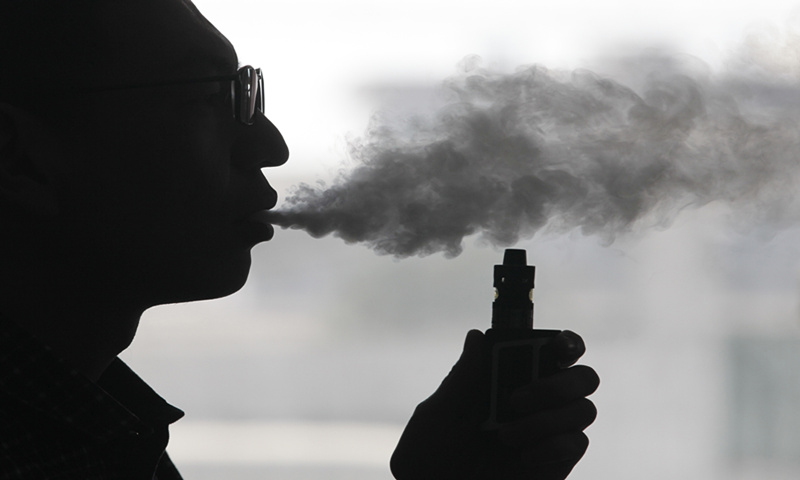Amendment to China's Law on the Protection of Minors bans parents from encouraging minors to smoke e-cigarettes

An e-cigarette smoker File photo: VCG
The amendment to China's Law on the Protection of Minors will take effect on the International Children's Day on June 1. The newly revised law includes a section for the protection of the health of minors that prohibits parents from encouraging kids to smoke e-cigarettes.
In the amendment related to family protection, 10 guardianship duties are specified for the living, health and safety of minors, and 11 prohibited behaviors of parents or other guardians are ruled.
In particular, guardians are forbidden to encourage or instigate minors to smoke, use e-cigarettes, drink alcohol or gamble.
China has issued a number of bans since 2018 to protect minors from e-cigarettes. However, some companies still sell e-cigarettes to young people by disguising the product with fashionable and attractive presentations to downplay the attributes of cigarettes.
Though some e-commerce platforms have banned the search of e-cigarettes, customers can still find the products using different key words and purchase them without proof of age or ID information.
Media surveys have shown that young consumers, between the ages of 15 and 24, have become major e-cigarette buyers in China.
A report by China's National Health Commission released on Wednesday on the health hazards of smoking in the country came to the conclusion that "all flavors and brands of e-cigarettes are cytotoxic."
The report showed that the e-cigarette use rate in China has risen to 0.9 percent in 2020, with 10.35 million users of e-cigarettes.
Among them, young people account for a relatively high proportion of users with 1.5 percent in the 15-24 age groups.
The average price of e-cigarettes in China's supermarkets does not exceed 50 yuan ($8).
"Either cigarettes or e-cigarettes are a form of tobacco that contains nicotine. More than 7,000 substances will be produced when they are burned, many of which have carcinogenic effects," said Tian Qingle, Chief Physician of the Jiangsu Provincial People's Hospital.



